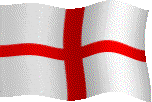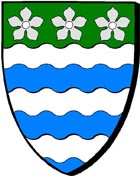Encyclopédie Marikavel-Jean-Claude-EVEN/Encyclopaedia/Enciclopedia/Enzyklopädie/egkuklopaideia

England Bro-Saoz |

Cumberland Bro Gembre an Hantronoz*** |
|
Bowness on Solway Maia / Maium |
| page ouverte le 23 mars 2005 |
|
forum de discussion
* forum du site Marikavel : Academia Celtica |
dernière mise à jour : 28/05/2012 10:44:05 |
![]()
|
Définition : Angleterre; comté de Cumberland. |
|
![]()
|
ii
Extrait de la carte Ordnance Survey : Map of Roman Britain. Maia est indiquée par le point bleu, à l'embouchure de la rivière Ituna / Eden. |
![]()
|
i
Extrait de la carte Ordnance Survey : Hadrian's Wall. La forteresse Maia est indiquée par le rectangle rouge, à l'extrémité convexe de l'embouchure de la rivière Ituna / Eden. |
![]()
|
Histoire : |
![]()
|
Étymologie : A. Maia / Maium : * Rivet & Smith, p. 408 : SOURCES - Rudge Cup and Amiens patera : MAIS - Ravenna 1075 (= R&C 120) : MAIO - Ravenna 10729 (= R&C 154) : MAIA - Ravenna 10922 (=R&C 298) : MAIONA (ND : We propose to read, at XL49, Tribunus cohortis primae Hispanorum, MAIS (or MAIO); for the argument, see p. 221) In his 1935 study of the Rudge Cup, Richmond noted that Bowness fort was the terminal point of two Systems, the Wall and the Cumbrian coastal defences, and was therefore mentioned twice by Ravenna (which, he then thought, rarely repeated names). The association of Ravenna's Maiona with this place is made here for the first time. Although at 10922 it figures in the list of islands ad aliam partem, and was taken as a western island by R&C, it is likely that (as is the case with other non-island names in this section) it was written 'in the sea' on a map and wrongly interpreted by the Cosmographer. Final -na could have arisen from *Maium (neuter singular) on the map, written as was the Cosmographer's habit *Maion and then miscopied. DERIVATION. It is not sure what the correct form of this name in Latin guise should be. The only epigraphic evidence indicates a locative plural in -is (as argued also for the Rudge Cup form of Camboglanna). If this is right, the nominative neuter plural of the name is Maia, as in Ravenna I0729. In that case the neuter singular Maio and what we can see in Maiona are equally acceptable oblique-case singulars. All may be right; such variation in recorded forms is by no means improbable. R&C suggests that the base of the name is British *maios, comparative of *maros (compare Latin maior), from which Welsh mwy derives; Jackson LHEB 357 and 360 appears to accept this. The sense is therefore 'larger (one or ones)', perhaps referring to the size of promontories (Bowness contrasted with Drumburgh). If thename is basically adjectival, it is easy to see how in differing interpretations it could be singular or plural, as the sources appear to show. The root is represented in personal names in Gaul such as Maiagnus, Maianus, Maiiona for *Magiona (Holder II. 387), perhaps Maiorix; in Gaul and Italy a goddess Maia was known. The only relevant place-names abroad seem to be Maio Meduaco between Brenta Vecchia and Brentella in N. Italy, and the Statio Maiensis mentioned under Magis. The North British Maeatae people may have a first element in their name corresponding to the present name. IDENTIFICATION. The Roman fort at Bowness-on-Solway, Cumberland (NY2262). -------------------- Explication étymologique en suspens. Ces auteurs évoquent des possibilités de raccordement de la racine *mai- au britonnique *maios, à comparer avec *maros, et le latin maior, se référant alors à l'importance du promontoire. Ils évoquent aussi des noms de personnes gaulois : Maiagnus, Maianus, Maiiona < Magiona, et peut être Maiorix; également à une déesse connue en Gaule et en Italie : Maia. Les seuls noms pouvant relever de cela étant Maio Meduaco, entre Brenta Vecchia et Brentella en Italie du Nord, ainsi que Statio Maiensis, citée sous Magis. De même, ils évoquent la première syllabe du nom des Maeteae. ------------------------ B. Bowness-on-Solway : * Eilert Ekwall , p. 56 :
* A.D Mills : "OE boga + ness, r OScand. bogi + nes . Solway (Sulewad, 1218) probably means 'estuary of the pillar ford', OScand. sul + wath, see Solway Firth". ***** Observation JCE : La position de Bowness / Maia, située à l'extrémité de la rive convexe sud de l'embouchure de la rivière explique parfaitement l'étymologie de Bow-ness : promontoire convexe. Pour Maia, il y a lieu de tenir compte d'observations faites en comparaison d'autres noms de ce type : - il semble qu'on puisse restituer une racine *mag-, qui aurait pour sens le débouché marécageux d'une rivière ou d'un étang. On peut citer les noms en *meganne (cf Andouillé), la rivière Maye, en Picardie, et le mot breton mailh = boue, fange, etc. - étant, en général des terres alluvionnaires riches, on peut penser à des terrains productifs (cf la voisine Aballaka : le verger, la pommeraie), pour évoquer leur caractère nourricier. Dans ce cas, on pourrait y voir un dérivé de *mag- = nourriture, qui a donné la déesse latine Maia : la nourricière, déesse porteuse, éponyme du mois de Mai, et évoquer le mot breton mager = nourricier, associé au verbe magan : nourrir. (ex. St Joseph est qualifié de Tad Mager : le père nourricier, peut-être par dérision, peut-être par réalisme). - voir aussi l'étymologie du nom de Lanmodez, commune située à l'embouchure du Trieux, en Petite Bretagne. Communément rattachée à St Maudez, alors que la propre étymologie de celui ci est *Magu-Tit, ce qui peut évoquer une confusion, fortuite ou forcée, avec l'embouchure du fleuve Titus, cité par Ptolémée. |
![]()
|
Blason : |
|
![]()
|
Sources : * Ordnance Survey : Map of Roman Britain. 1956. * Ordnance Survey : Hadrian's Wall. 1964. * A.L.F Rivet & Colin Smith : The Place-names of Roman Britain. Batsford Ltd. 1979-1982. - A.D Mills : Oxford Dictionary of British Place Names. 1991-2003. - Albert Deshayes : Dictionnaire étymologique du breton. Chasse-Marée. 2003. |
![]()
|
Liens électroniques des sites Internet traitant de Maia / Maium : * lien communal officiel : * Musée d'Amiens : http://www.amiens.fr/decouvrir/musee/parcours/soussol/gallo.asp * forum du site Marikavel : Academia Celtica hast buan, ma mignonig go fast, my little friend |
![]()